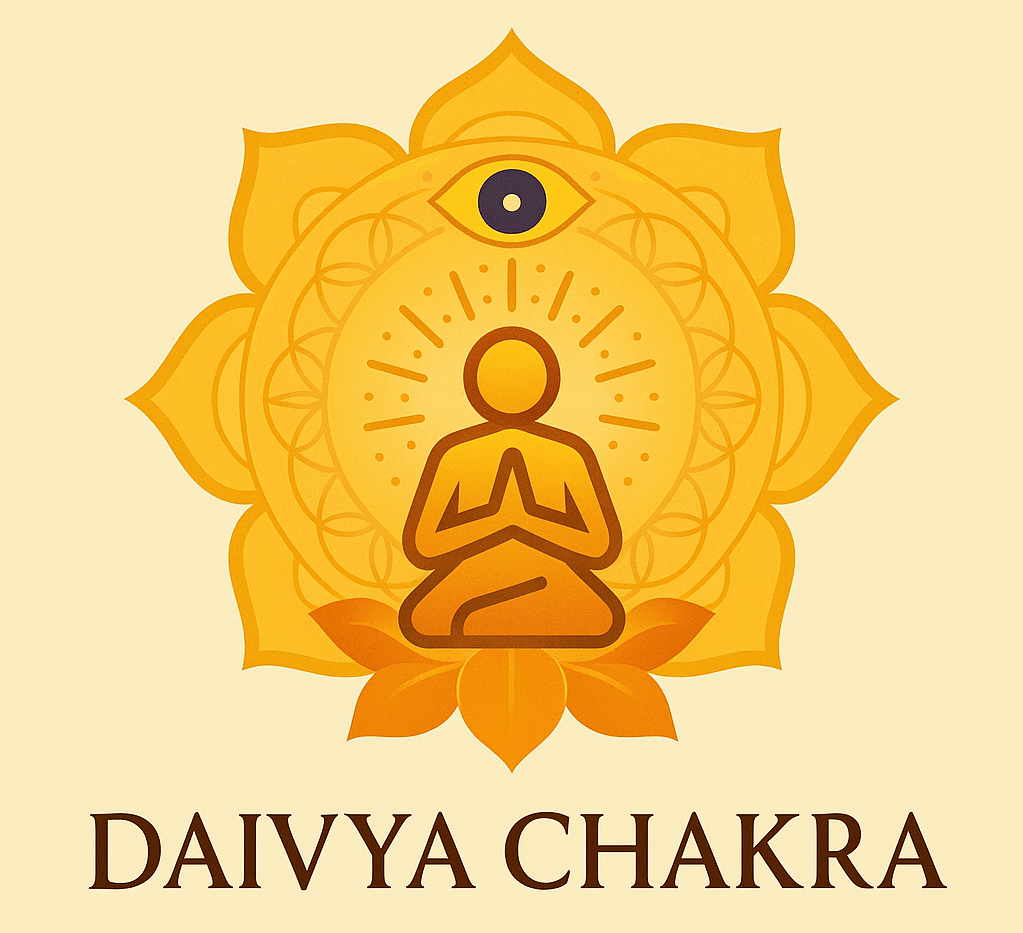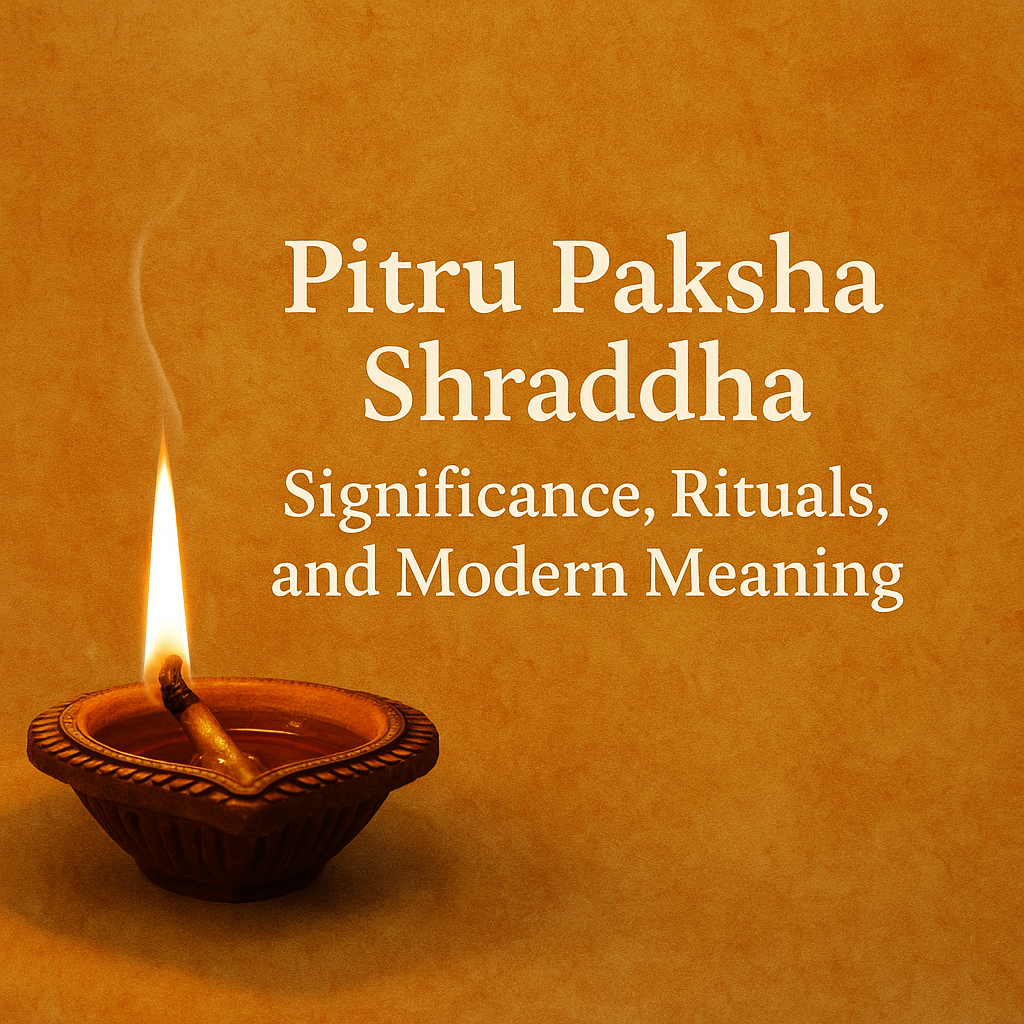There are certain times in the year when the world feels quieter, almost as if it is waiting for us to pause. For me, Pitru Paksha is one such moment. It is a fortnight when Hindus turn their thoughts backward—to the people without whom we would not be here.
When you grow up in a Hindu household, you often hear stories about ancestors—grandparents, greatgrandparents, even those whose names have long been forgotten. Pitru Paksha is about acknowledging that invisible chain, about remembering that our lives are stitched from threads spun generations ago.
Why Pitru Paksha Matters
If you ask an elder why we observe Pitru Paksha, they will tell you, “It is our duty. Just as a tree cannot survive without roots, a person cannot grow without honoring where he came from.”
The rituals themselves offering water, rice balls, prayersmight seem symbolic to some. But the essence is profound: it is about gratitude. In a time when life often feels rushed, this fortnight reminds us that memory is sacred.
We owe what we are to those who came before us their struggles, their joys, their mistakes, their sacrifices. Shraddha, the central ritual of Pitru Paksha, is a way of saying: We remember. We thank you. We continue your journey in our own way.
The Atmosphere of ShraddhaI have vivid memories of mornings during Pitru Paksha. The air would carry a kind of seriousness, though not sadness. My grandfather would sit with a brass plate, arranging rice balls
(pinda) with quiet concentration. There was no hurry, no sense of obligation. Only faith—simple and unadorned.
Neighbors would often join in. Some would offer food to cows, others would invite Brahmins for a meal. Even children, though they didn’t understand the deeper meaning, knew something special was happening.
That is the beauty of Pitru Paksha. It turns an ordinary day into a dialogue across generations.
Rituals, Seen Through a Human Lens
Yes, scriptures prescribe certain steps tarpan (offering water), pinda daan (food offerings), feeding the needy. But what touches me is the thought behind them.
- When you pour water for your ancestors, it is as if you are saying: “Here, let me quench your thirst.”
- When you roll rice and barley into pindas, you are shaping nourishment out of your own hands.
- When you feed a poor person, it is as if your ancestors are eating through them.
The ritual is not magic; it is memory in action.
Beyond Rituals: The Modern Meaning
Today, many people live in cities, far away from their ancestral homes. They may not know the exact mantras, or the details of every ritual. Does that mean Pitru Paksha has no place for them? I don’t think so.
Even if you cannot perform traditional Shraddha, you can still light a lamp, cook your ancestors’ favorite dish, or simply sit quietly and recall their faces. Gratitude doesn’t always need Sanskrit chants it needs sincerity.
I often feel that in our modern lives, Shraddha should also mean living by the values passed down to us. If your grandmother believed in honesty, if your father worked tirelessly, if your ancestors tilled the soil with devotion then carrying those values forward is also Shraddha.
Stories That Stay With Us
One of my favorite stories about Pitru Paksha comes from the Mahabharata. When Karna, the great warrior, died and reached the afterlife, he was offered gold and jewels instead of food. Confused, he asked why. The answer was heartbreaking: during his lifetime, he had donated wealth but never food to his ancestors.
From then on, he was allowed to return to earth during Pitru Paksha to make amends. This story, whether you take it as myth or metaphor, carries a simple truth: love is best expressed through nourishment, through giving what sustains life.
The Emotional Undercurrent
What moves me most about Pitru Paksha is its tenderness. Unlike festivals filled with music, colors, and noise, this period is quiet, reflective. It is not about seeking blessings for wealth or success; it is about offering something, giving back.
It also has a universal dimension. Every culture, in its own way, honors the dead—the Chinese with Qingming, the Japanese with Obon, Mexicans with the Day of the Dead. Pitru Paksha is the Hindu expression of this timeless human need: to remember, to stay connected with those who are gone.
Carrying the Tradition Forward
As years pass, the way we observe Pitru Paksha may change. But its essence must remain alive. Imagine if every family, at least once a year, sat together and spoke about their grandparents and greatgrandparents. Imagine children growing up not only with gadgets and textbooks but with stories of resilience, sacrifice, and love.
That, to me, is the heart of Shraddha. It is not just a ritual; it is a reminder that we are not isolated islands but part of a flowing river of life.
Conclusion: Gratitude as a Way of Living
Pitru Paksha lasts only fifteen days on the calendar, but its message can stretch across the entire year. Gratitude is not seasonal. Memory should not be occasional.
When I think of my ancestors, I don’t imagine only their photographs or their graves. I imagine the soil they walked upon, the sweat they poured into their work, the laughter and tears they left behind.
Pitru Paksha tells us: Live in such a way that when your turn comes to be remembered, your descendants will smile with pride and gratitude.
And that, I believe, is the greatest Shraddha of all.

